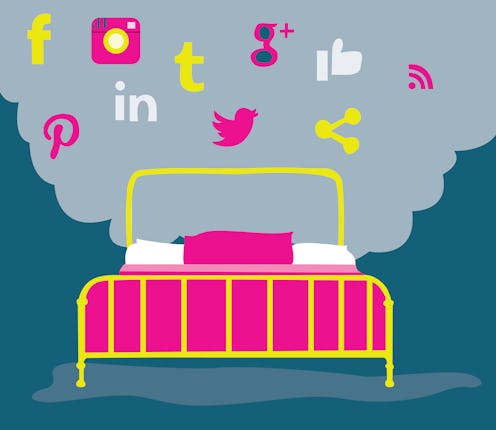
For most of us, the day begins and ends the the Internet. How often do you wake up in the morning and check your social media notifications while still in bed? How often do you drift to sleep streaming Netflix? For better or worse, the Internet has already become a standard part of our daily lives. For a lot of us, using the Internet isn't just a means to zone out; on the contrary, we're reading articles (like this one!), searching for answers, and engaging with perspectives unlike our own. But has the Internet fundamentally changed our brains?
In a lot of ways, the Internet is awesome. A whole world of information is literally at our fingertips; research that used to call for days in a library is now available within minutes. The Internet, too, allows us to keep connected with distant family and friends, sustaining connections previously possible only through the delayed passage of snail mail and at the expense of long-distance phone calls. In fact, PEW Internet Research found that 67 percent of people aged 18 to 29 use the Internet to keep in touch via social networks. How's that for the benefits of living in the digital age?
But while all of this is well and good (after all, who doesn't love getting a Facebook notification from their beloved great-aunt Martha?), we shouldn't ignore that the speed and glory of the Internet may come with some serious pitfalls. Nicholas Carr at The Atlantic, for example, worried back in 2008 that the Internet might be making us stupid. In particular, he discussed the way we explore and retain information we read on the Internet, saying, "Once I was a scuba diver in the sea of words. Now I zip along the surface like a guy on a Jet Ski." As Internet users who are used to multi-tasking on the web, are we, as a collective unit, engaging with content on a surface level only?
Jackson Bliss over at The Daily Dot also has a grim perspective on the way we read on the Internet, asserting as 2016 kicked off to a start, "The New York Times article we half-read on our iPhone while standing up in the Los Angeles Metro ends up blurring with the 500 modified retweets about that same article on Twitter." For a lot of us, that stings a bit to hear: After all, don't we want to be experts after clicking a few links at the end of an article? Isn't it validating to "catch up" on information through a quick Google search?
Is the difference in our reading all in our heads? Not according to Michael Rosenwald at The Washington Post, who explained in 2014, "Before the Internet, the brain read mostly in linear ways — one page led to the next page, and so on. Sure, there might be pictures mixed in with the text, but there didn’t tend to be many distractions."
Makes sense — growing up, I could easily curl up on the couch and read an entire book in one sitting. Admittedly, those texts were much simpler than the novels I sit down with now, but I have to admit: I, too, worry that my attention span is shorter than it used to be. On this subject, Rosenwald mused, "Our brains form shortcuts to deal with it all — scanning, searching for key words, scrolling up and down quickly" which makes sense: how often do we skim texts on the Internet, looking for defined phrases and infographics? Troublingly, young adults now spend a quarter less time reading than they did a decade ago, and what's filling that void? The Internet, of course.
Internet usage may affect more than just our reading comprehension in a very frightening way. For example, research published in 2011 found that four out of five students experienced withdrawal symptoms when asked to disconnect from the Internet for a day. These symptoms, which Richard Gray at The Telegraph compared to those experienced by "smokers attempting to give up," included stress, panic, isolation, and confusion over, that's right, not being able to read text messages or Twitter feeds for one day. This may sound ridiculous, but for a lot of people, Internet addiction is a real thing, with studies showing that heavy Internet users experience depression right after logging off.
Science proves to us that the Internet has real affects on our brain, and for people with Internet addiction, the change can be severe. How exactly the Internet affects our brain is serious stuff, considering the average child has seven hours of screen time per day. What about adults? On average, we spend a whopping 11 hours interacting with digital media. While I'm certainly not suggesting we all kick the Internet, it's definitely worth stepping back and evaluating how much time we use the Internet and how it's affecting other aspects of our lives, like our memory, reading comprehension, and overall happiness.
Images: Lindsay Johnson/Bustle; Giphy (3)